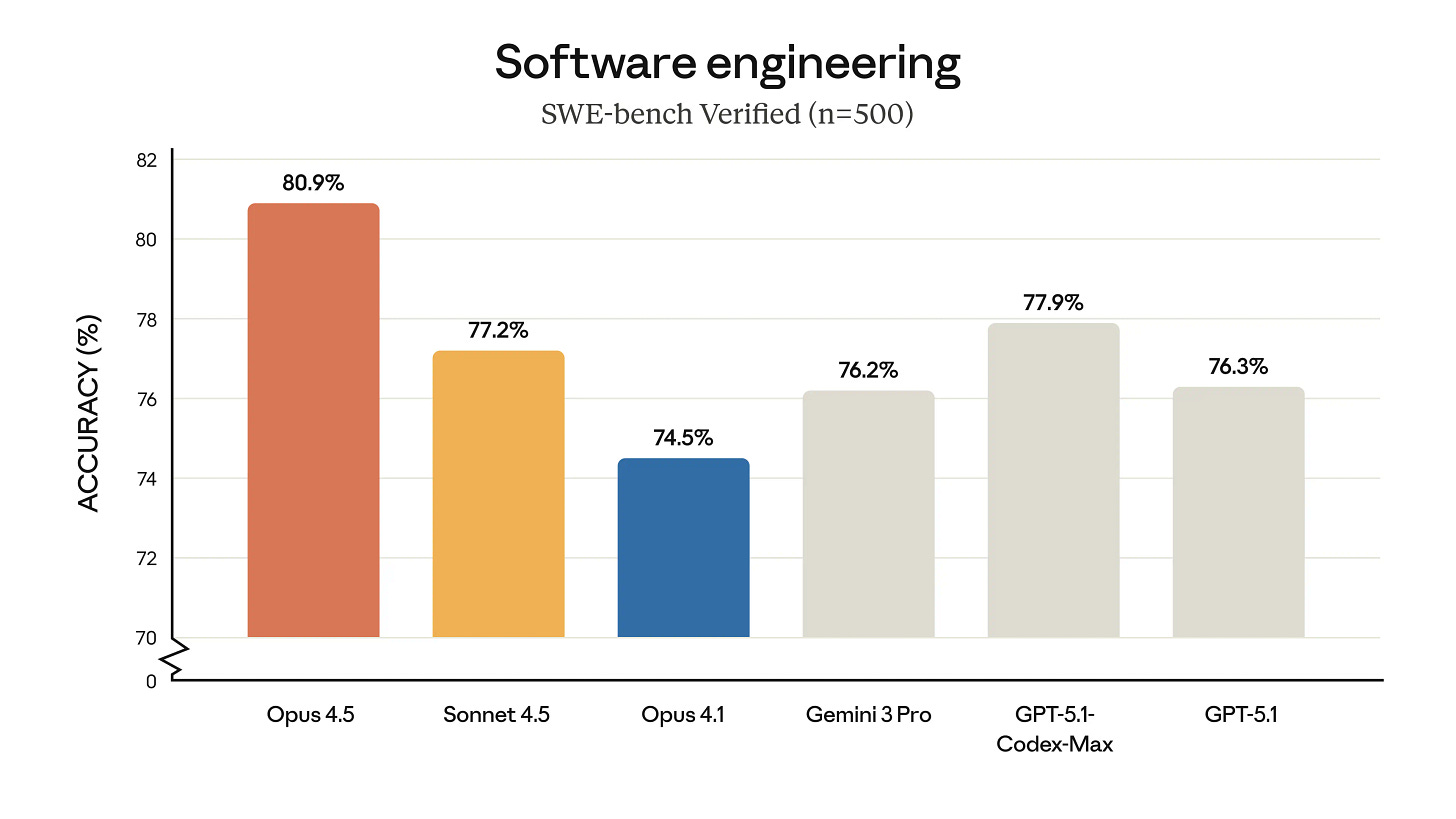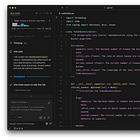Opus 4.5 is Here: We’re Loving It
We’ve been working with our friends from Anthropic for a while now, and it’s finally time to share: Claude Opus 4.5 is launching today.
Our team at Kilo Code has been spoiled testing a preview of the latest model from Anthropic. Today, Anthropic officially launches Opus 4.5, and we’re making it available immediately in Kilo Code.
Update: see how it performs against other top models →
The Standout Feature: Effort Settings
The most significant change? Opus 4.5 introduces something genuinely new: effort settings. You can now tell the model how hard to think.
High effort: Claude takes its time, uses more tokens, delivers maximum intelligence (this is Anthropic’s default)
Medium effort: The sweet spot for most tasks
Low effort: Fast, efficient, and surprisingly capable for straightforward coding tasks
Think of it like having three models in one. Need a quick function? Low effort. Architecting a complex system? Crank it to high. This aligns perfectly with Kilo Code’s methodology of thinking in modes.
What We’ve Learned From Testing
We’ve been running Opus 4.5 through its paces with our engineering team. The consensus? This feels like a solid upgrade to Sonnet 4.5 for certain tasks.
Christiaan from our team summed it up well after extensive testing:
“Overall impressions are very good, the model feels very similar to previous models - maybe less verbose and more precise in decision-making.
The speed and performance are particularly impressive as well!”
He did note one quirk: at high effort settings, the model sometimes prefers rewriting entire files instead of making surgical edits. Not necessarily wrong, just different from what we’re used to. Drop it to low effort, and it becomes more focused on specific changes. In fact, this could be considered a feature!
The Numbers That Matter
Let’s talk pricing. Opus 4.1, while obviously more expensive than “smaller” models at $15/MTok input and $75/MTok output, was already competitively priced for similar intelligence-level models.
Opus 4.5 comes in at $5/MTok input and $25/MTok output.
That’s a 3x reduction on both input and output costs. For context, that makes Opus 4.5 cheaper than many “budget” models were just six months ago, while delivering top-tier, frontier performance.

Where Opus 4.5 Shines
After weeks of testing, here’s where we’ve found Opus 4.5 really excels:
Long context understanding: Feed as much context from your codebase that makes sense for the task at hand. It actually remembers what you showed it 100K tokens ago.
Frontend work: Anthropic specifically improved this model for frontend coding - and it even outperforms Sonnet 4.5 on design. We’ve seen it produce genuinely creative designs instead of the typical “centered purple div with rounded corners” that plague AI-generated UIs.
Multi-image analysis: This is huge for debugging UI issues. Show it multiple screenshots, and it understands the relationships between them.
Structured outputs: Native JSON mode and strict tool use. No more praying your LLM outputs valid JSON.
The Trade-Offs
No model is perfect. Here’s what we’ve noticed:
The model can overengineer solutions. It might create three abstraction layers when you just wanted a simple function. We’ve found adding “keep it simple” to prompts helps when you really want a simple solution.
At high effort settings, it sometimes wants to show off by rewriting more code than necessary. Great for refactoring, less great when you just need a bug fix.
The low-effort mode is genuinely useful - our workloads skew heavily toward input tokens anyway. As one of our engineers noted, for simple tasks following specific instructions, low-effort mode gives you Haiku-like efficiency with Sonnet-like quality.
Available Now in Kilo Code
Opus 4.5 is live in Kilo Code as of today. Just select claude-opus-4-5 from your model dropdown.
If you haven’t tried Kilo Code yet, now’s a good time. We’re an open coding assistant that shows you exactly what you’re paying for each API call - no markup, no hidden fees. With Opus 4.5’s new pricing, you might be surprised how affordable frontier AI coding can be.
Looking Forward
The pace of model improvements shows no signs of slowing. Five months ago, Claude Sonnet 4 was state-of-the-art. Today, we have models that match its performance at a fraction of the cost, with new capabilities like effort settings that fundamentally change how we interact with AI.
What excites us most? The effort setting isn’t just a technical feature - it’s a glimpse at AI models that can adapt their thinking to match the task at hand. Sometimes you need a quick answer. Sometimes you need in-depth analysis. Now you can have both from the same model.
We’ll be sharing more detailed benchmarks and use cases over the coming weeks. For now, give Opus 4.5 a spin and let us know what you think.
Want to see Opus 4.5 in action?
Join us at 5 pm Eastern / 2 pm Pacific for a live demo of Opus 4.5 in Kilo Code.
We’ve been testing Opus 4.5 before today’s launch through our partnership with Anthropic. All observations shared here come from real usage by our engineering team.



Long context understanding? not really.
The more the compressions (by AI on AI data) the more degradation.
Endlessly
Imagine making photocopies of photocopies ....
Check Reddit as an example
I've done it for you. Full story here
https://open.substack.com/pub/donatomangialardo/p/what-claudes-endless-chat-in-opus?r=1z9mo&utm_campaign=post&utm_medium=web
Opus 4.5’s effort settings are a game-changer! Adapting thinking depth to the task feels like having three models in one, and the cost reduction makes frontier performance genuinely accessible.